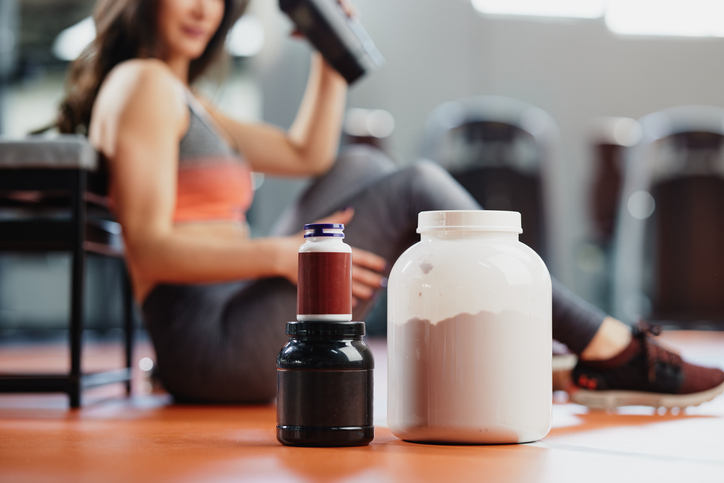When you think of "vegan," words like "healthy" probably come to mind. But what about "muscular"? Surprisingly, as plant-based lifestyles become more popular, vegan protein powders derived from sources like peas, rice, soy, and hemp are gaining traction in the fitness world.
These vegan protein powders aren't just alternatives for those who avoid animal products. Research shows that they can deliver results comparable to other types of protein, making them a viable option for muscle gain. Here's what you need to know about using vegan protein powder to build muscle.
Building Muscle with Vegan Protein Powder
Studies have shown that vegan protein powders can be just as effective as animal-based proteins for building muscle. For example, research published in the Journal of the International Society of Sports Medicine found that rice and whey protein had similar effects on body composition and performance. Pea protein has also been found to be effective in comparison to a placebo and on par with whey protein.
Like whey protein, vegan protein powders can contain essential amino acids like BCAAs, which are crucial for muscle growth. Among these amino acids, leucine is particularly important for muscle building. The International Society of Sports Nutrition recommends protein sources rich in leucine, such as whey and pea protein, that provide a balanced array of essential amino acids.
While whey protein is considered a complete protein due to its balanced amino acid profile, most vegan protein sources are not complete on their own. However, combining pea protein with other plant-based proteins can help create a more complete amino acid profile, according to sports dietitian Kelly Jones.
To build muscle on a vegan diet, Jones suggests consuming 1.8 grams of protein per kg of body weight per day, with an additional 10% of that amount in grams to account for lower bioavailability in plant protein sources compared to animal protein.
Vegan Protein vs. Whey Protein for Muscle Gain

While studies suggest that vegan protein can be just as effective as whey protein for building muscle, there is no definitive evidence that it is superior. Both types of protein can help with muscle recovery and growth, so the choice between them often comes down to personal preference and dietary considerations.
Regardless of the protein powder you choose, it's important to remember that it's not a magic solution for muscle gain. Proper nutrition, including adequate protein and energy intake, as well as timing of protein consumption, are key factors in achieving your fitness goals.
Additionally, maintaining sufficient calorie intake, especially from carbohydrates, is essential for fueling your workouts and sustaining intensity during exercise. If animal-based proteins like whey or casein don't agree with your stomach or if you follow a vegan diet, you may find vegan protein to be a more suitable option.
*These statements have not been evaluated by the Food and Drug Administration. This product is not intended to diagnose, treat, cure, or prevent any disease.
